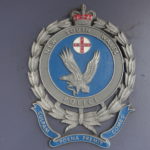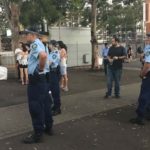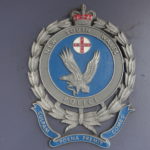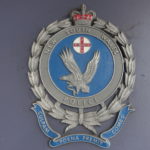Police Watchdog Finds that Illegal Strip Searches Did Not Amount to ‘Serious Misconduct’
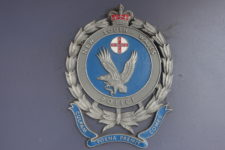
The Law Enforcement Conduct Commission (LECC) released its report into Operation Karuka on 8 May. It was one of a number of reports into questionable strip searches carried out by NSW police officers over recent years, at a time when the use of this invasive practice has skyrocketed.
The inquiry arose from a complaint made by a 26-year-old First Nations man in July 2017, regarding two strip searches he was subjected to at a police lockup on 24 June that year. He’d been arrested for breaking into an apartment block and a small foil of white powder was found in his underwear.
Referred to as KA10C in the report, the man claimed he was sexually assaulted and racially vilified during the searches. And the state’s sole police oversight body decided to investigate the claims, after an internal NSW Police Force investigation concluded they weren’t sustained.
The LECC considered whether the searches were justified, if excessive force was used, whether a body cavity had been unlawfully searched, if neglecting to follow protocols indicated “systemic failures”, and the fact that the detainee was left naked and distressed for a prolonged period.
Operation Karuka is part of a wider strip search inquiry launched by the LECC in October 2018. And it’s been suggested that former LECC chief commissioner Michael Adams was stood down in January, due to his pursuit of this inquiry specifically.
Unto themselves
The strip searches that were conducted upon KA10C at an undisclosed police station were captured on CCTV footage, however there was no audio recording. And the first search was carried out in cell number 4 with three male officers present.
According to the report, the subject is seen to be compliant in removing his clothes, although he becomes visibly agitated, after he was allegedly asked to bend over and part his buttock cheeks with his hands. KA10C instead completes two squats, followed by three more in quick succession.
Just prior to the squats, the female custody manager arrives at the behest of the naked inmate to discuss his objection to bending over. She then steps outside as he performs the squats and apparently doesn’t see them, as she goes on to order a second search, because he won’t bend over.
A nude KA10C is subsequently marched to cell number 2, whilst handcuffed and holding his underwear. And after about 20 minutes, the CCTV footage captures four male officers performing another strip search, this time using force.
With his hands cuffed behind his back and completely naked, KA10C is brought down onto floor by officers. The inmate is then held down by two of them, while a third wrenches up his leg, so a fourth can get a thorough look at his buttocks and groin.
The Aboriginal man is then left unclothed, “visibly distressed” and handcuffed – after refusing to have them removed – in the cell for a period of 28 minutes.
According to the searched
The LECC received a complaint from KA10C on 20 July 2017. He outlined that he was readily following the orders of the officers conducting the search, until they directed him to bend over and part his buttock cheeks.
“In all the time I’ve been involved in the system this procedure/direction has never occurred,” the complaint read, “so, I did 3 x squats whilst having my feet parted wide, which is protocol in the Department of Corrective Services.”
However, KA10C claimed that one of the officers was not satisfied with this solution and once again demanded that he bend over and part his buttocks, so his anal cavity could be inspected for any contraband.
After refusing again, KA10C said he was told, “You have no rights here, ya black bastard.” And at this point, an officer tried to apply a wrist lock to the detainee.
KA10C also asserts in the complaint that one of the officers inserted their index and middle fingers into his rectum during the second search.
Convenient outcomes
The LECC inquiry consisted of questioning the eight officers involved. However, KA10C was not called as a witness and therefore, he couldn’t be cross-examined about his claims regarding being told to bend over, fingers being inserted into his rectum or being called a black bastard.
According to the report, there was nothing to support these claims within the testimony of the officers, “who gave evidence on oath and were extensively cross-examined”.
The LECC also set out that a thorough viewing of the footage shows the claim of penetration was “baseless”.
Due to the lack of audio accompanying the footage, the LECC asserts that it isn’t possible to verify many of the claims made by the detainee, including the racial abuse. And the watchdog found that the detainee’s agitated state in the footage isn’t necessarily because “police were unreasonable”.
Excusing illegality
Part 4 division 4 of the Law Enforcement (Powers and Responsibilities) Act 2002 (NSW) contains the NSW police powers that apply to strip searches. This legislation is commonly referred to as the LEPRA.
Subsection 32(7) of the LEPRA stipulates that a strip search “must be conducted by a police officer of the same sex as the person searched”, while subsection 33(1)(b) states it “must not be conducted in the presence or view of a person who is of the opposite sex to the person being searched”.
Clearly, when the female custody manager turned up during the first search and spoke with KA10C about how the procedure was progressing, she was breaching the law. However, the report authors found that she hadn’t had proper training in her role and moreover, it was “a busy police station”.
The report then goes onto excuse the behaviour, as the provisions outlined in these sections are “not an absolute prohibition”, because both state that an officer must comply “as far as is reasonably practicable in the circumstances”.
A force to be reckoned with
Another major issue considered by the LECC was whether unreasonable force was used during the searches. Section 230 of the LEPRA stipulates that it’s lawful for an officer “to use such force as is reasonably necessary to exercise” any of the functions within the legislation.
The first issue considered was in relation to the wrist lock applied by an officer during the first search. LECC investigators found that while the footage seems to show “no apparent overt aggression” on the part of KA10C, this doesn’t correspond with evidence given by police.
The report further states that “it is difficult to be clear in the absence of sound recording of what was happening”. So, the wrist lock was not found to be unreasonable as it was anticipating action that might arise from the detainee’s “abusive language and failure to cooperate”.
The LECC also considered the force used when the same officer lifted KA10C’s leg, so as to allow the inspection of his buttock. And the watchdog found that as the officer was acting under the instructions of a superior officer and the subject wasn’t complying the force wasn’t unreasonable.
No serious misconduct
The LECC investigators came to the conclusion that no serious misconduct was involved in the strip searches.
The female custody manager’s attendance was simply inappropriate, and while the second search was unjustified, “it arose out of confusion and lack of communication”.
And to consider whether the conclusion of the LECC investigation would have been different if it was still under the oversight of former NSW Supreme Court Justice Michael Adams QC would be mere speculation.


